More On Fighting for Woody Tone
You have to fight for wood. Don’t think you can name one example of woody tone that came effortlessly for a player. (Anyone? Maybe a Dumble user?)
Along those lines, here are a couple quotes that’ll at least make you think, maybe also get you to turn down the Master Vol, play a little louder (or a cranked smaller amp) and ditch the OD pedal.
The first is by a user on recforums.prosoundweb.com named David Ballenger, from a Q&A with engineer Tony Platt about the recording of AC/DC’s Back in Black:
I’ve always felt the thing that defined the greats like Jimmy Page, Jeff Beck, Eric Clapton, Jimi Hendrix and Billy Gibbons is coming from era where it was hard to get sustain. It really made them have to learn to use a very physical technique. Basically you have to wrench it out of the equipment with your hands.
But that’s the good thing because it makes your equipment have to reflect your playing. I thinks that’s what makes a stronger player.
Then when you have any situation [like]…the use of some exotic effect, you’re going to get the most out of it because of a great sense of control with your hands.
All the above players came from a blues tradition and brought it back into rock.
The good thing about tube amps driven full out is the self-compression. That’s the important characteristic that allows one note to sound as loud as a chord when you dime out the volume. Sustaining lead is based on that.
With a good tube amp basically you back that down to a level where you get the amount of clarity and attack you want.
[With] traditional tube amps, the highs roll off the hotter it gets. The sound becomes less dynamic as you approach total saturation, and the sound is one that is harmonically richer (fatter). You basically try to find out how put the treble back in with your technique (play closer to the bridge) or pickups….
And now, here’s Tony Platt himself answering this question on ultimate-guitar.com: What piece of technology do you think has been the most detrimental in the evolution of the recording realm?
It would be the digital guitar tuner. When I first started, there were no guitar tuners. Guitarists would tune to the piano, as the piano was always in tune in the studio.
And so, the guitar players always had the capacity to hold a guitar in tune. If they heard a string going out, they’d pull it a little bit to bring it back in. So things weren’t absolutely perfectly in tune but there wasn’t this focus of attention on the tuning so much. People were focusing on getting the feel right and getting it to where it was exciting.
Now what happens is one string goes out of tune, everything stops, guitarist plugs into his tuner, tunes his guitar and then starts off again – but it has broken the momentum of the session so much.
And again what happens is we have this overabundance of guitar players who have this overriding reliance on this piece of technology. They’re not thinking of tuning in their head, they’re not hearing the tuning in there, they’re looking at it, on the scale on the tuner.
So don’t give up the fight! (Didja hear?)
More
> Is Fighting for Tone a Requirement?
Category: AC/DC, Tone Questions

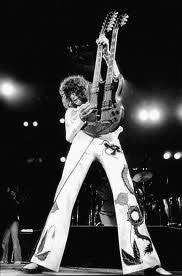




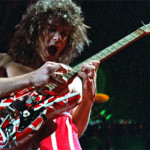
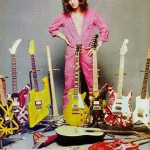
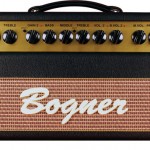

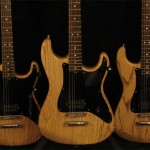


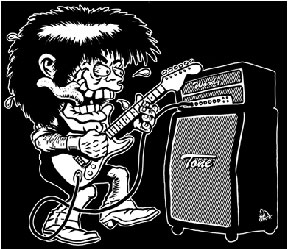

The tuner is a mixed blessing. As stated in the post, it has its drawbacks. On the other hand, as Satriani has said, pitch accuracy has a subconscious effect on the player. If you’re trying to practice or nail a part and your tuning is a little sour–not to the point where you consciously notice it, but enough to be perceptible–you might get discouraged faster, which prompts you to get frustrated or quit sooner. A well-tuned instrument makes your playing sound better, even if the difference is on a purely subconscious level. That makes you happier and want to play more.
Hey, in this digital day and age where laying down take after take doesn’t have to cost a million dollars in spent tape, tuning ain’t so bad.
Digital tuners are the most detrimental technology to recording??
Sheesh! Now I’ve heard EVERYthing…
Maybe Platt simply chooses a poor example with respect to tuners to explain the impact of setting a groove and getting “into” the music versus simply laying tracks and hoping 1 in 100 will be “good enough”.
I’m a big Satch fan, but his music can become very antiseptic and lack emotional depth. Then I watch Page playing live on something like the Rain Song on TSRTS, and there are plenty of “off” notes but I am struck on an emotional level by the tonal character and musicality … the skill that it takes to deliver on that level.
As for the Green Days, “Metal” grinders and their ilk, it’s sort of like listening power tools in a bathroom. No depth, no character, only anger as an “emotion”. Vintage Hendrix, Peter Frampton, Ace Frehley, Gibbons, Kossoff, Gorham, Robertson, etc. Tons of depth and feeling that more than make amends for any lack of perfection.